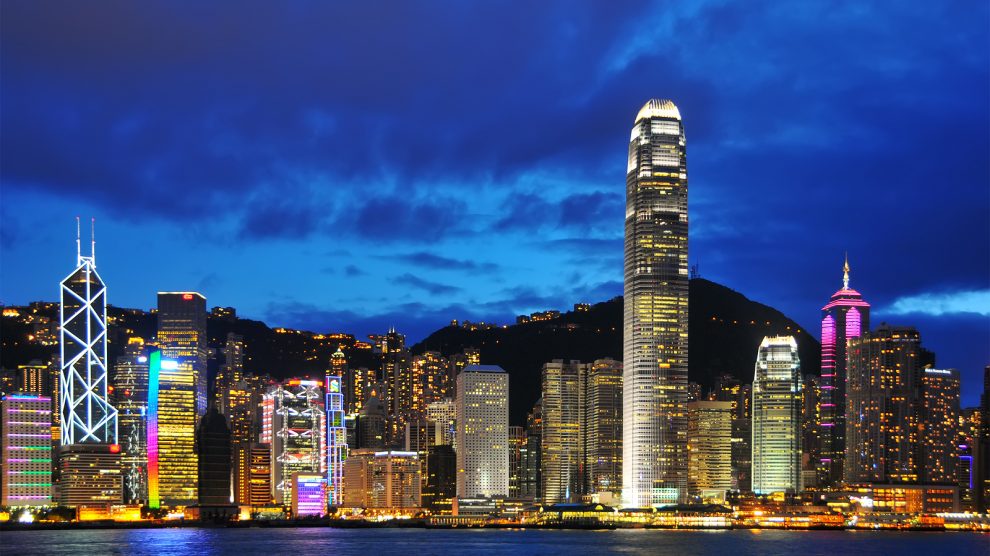After a slump in the mid-2010s, trade and investment levels between Central and Eastern Europe and the four Asian Tigers is booming.
Economic activity between the four so-called Asian Tigers (South Korea, Taiwan, Hong Kong and Singapore) and Central and Eastern Europe has been picking following a slump between 2015 and 2016, new data from Emerging Europe shows.
- Covid-19: Learning from the Asian Tigers
- Harnessing funding and know-how to deliver the infrastructure CEE needs
- Not using AI in healthcare will soon be malpractice
When it comes to the import of goods from the Asian Tiger countries to the region, there was an increase of 39 per cent in 2019 compared to 2016.
The top five countries importing from the Asian Tigers are Poland, Czechia, Slovakia, Hungary and Ukraine, and all five have seen increased levels of imports over the past five years.
In Poland, import of goods increased by 24 per cent, in Czechia by 30 per cent, in Hungary by 71 per cent and in Ukraine by a staggering 405 per cent.
Belarus meanwhile, despite not being one of the top five countries for overall imports, nevertheless saw imports from the Asian Tigers increase 273 per cent between 2015 and 2019.
Exports up too
Goods going the other way have also recovered from a slump from 2015-17, increasing by 60 per cent since 2017.
According to the United Nations Conference on Trade and Development (UNCTAD) the export of goods from Czechia to the four Asian countries increased by 100 per cent between 2018 and 2019. Belarus also saw a significant increase in exports — an astonishing 1,600 per cent, from a paltry 96 million US dollars (78.5 million euros) to 1.6 billion US dollars (1.3 billion euros). Ukraine has also exported more in the observed time period, seeing an increase of 139 per cent.
Czechia, Belarus, Poland, and Ukraine all exported goods worth more than one billion US dollars (818.2 million euros) to the Asian Tigers in 2019.
In 2019, South Korea was by far the largest trading partner of Poland in terms of trade of goods. For Czechia it was Hong Kong. Ukraine’s biggest Asian Tiger trading partner was Taiwan.
When it comes to services exports, Hungary leads the emerging Europe region, with three per cent of the country’s services exports heading for the four Asian Tigers in 2017. The percentage dropped to 2.5 per cent in 2018 however. In Estonia meanwhile, the trend is upwards, with its amount of services exports to South Korea, Taiwan, Singapore and Hong Kong reaching just over two per cent in 2018.
FDI
When it comes to foreign direct investment (FDI) the Asian Tiger countries see much higher levels of both inward and outward flows than emerging Europe. In 2019, Hong Kong alone had a higher inflow of FDI (68.4 billion US dollars or 55.9 billion euros) than all the countries of the emerging Europe region combined — 57.9 billion US dollars or 47.3 billion euros.
Outward flow, as in money countries invest abroad, is much the same. Hong Kong again leads the way with 59.3 billion US dollars invested (48.5 billion euros), way more than the emerging Europe total of 16.3 billion US dollars (13.3 billion euros).
Poland has benefited the most from FDI outflows from the Asian Tigers. In 2018, South Korea surpassed China as the country with the most investments in the country. In 2019, South Korea invested a total of 990 million US dollars (810 million euros) into Poland.
Indeed, Poland is now increasingly seen as South Korea’s gateway into the European Union. According to the Polish Investment and Trade Agency, there are already 260 companies from South Korea investing in the country. These investments are predominantly in infrastructure, energy, e-mobility, and green technology.
South Korea also has a significant presence in Hungary, where it invested more than one billion US dollars in 2018 and around 600 million US dollars in 2019.
Overall, trade and investment ties between the Asian Tigers and emerging Europe are strengthening, with imports and exports recovering from the mid-decade slump of the 2010s as Asian countries becoming more and more involved in investing in the region.
Unlike many news and information platforms, Emerging Europe is free to read, and always will be. There is no paywall here. We are independent, not affiliated with nor representing any political party or business organisation. We want the very best for emerging Europe, nothing more, nothing less. Your support will help us continue to spread the word about this amazing region.
You can contribute here. Thank you.



